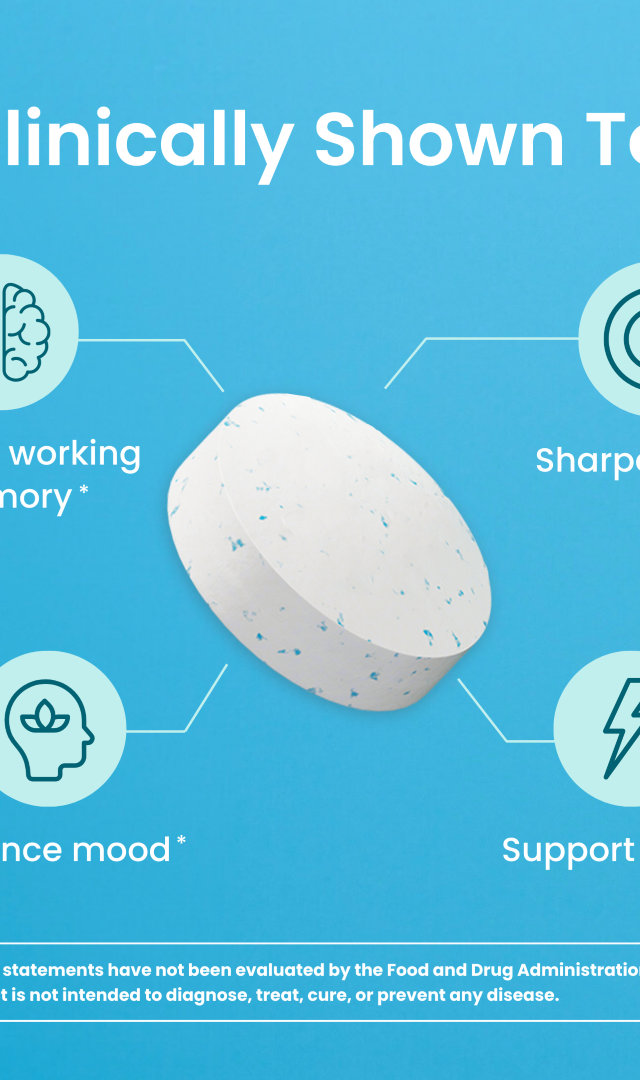Aspartame-Free Gum: What’s the Scoop?
Many individuals who wish to reduce their sugar intake—upon advice of their physician or on their own volition—seek alternatives to sugar as an additive in their food and beverage choices, but face a variety of market goods made with artificial sweeteners, including aspartame.
From candy, chewable vitamins, cough drops, and gum to frozen desserts, juice, and soda, many consumer products, especially those that are marketed as "diet" or "sugar-free" contain aspartame in place of sugar as a sweetening ingredient.
In a particular product such as gum, a sugar-free version containing aspartame can have possible attractive outcomes. Sugar-free gum:
- Does not cause tooth decay
- Does not raise blood sugar levels
- Helps with weight management
However, despite these potential health benefits, aspartame as a food additive remains a subject under constant review in both the public and scientific arenas.
Continue reading to learn more about aspartame, the ongoing debate surrounding it, and why aspartame-free gum is a better alternative.
What is Aspartame?
- Aspartame is a type of sugar substitute.
- It is an artificial sweetener added to food and beverage items to replace sugar.
- It is often commercially available under brand names such as NutraSweet® and Equal®.
- Aspartame is used widely in processed foods as well as in modified home cooking recipes.
What are some of the potential benefits of Aspartame?
- Because aspartame virtually has no calories, it can be appealing to individuals who are trying to lose weight or prevent weight gain.
- One teaspoon (a little over 4 grams) of sugar has about 20 calories and 5 grams of carbohydrates.
- For comparison, a 12-ounce can of regular soda may have nearly 40 grams of sugar and 140 calories.
- The same amount of soda sweetened with aspartame has neither sugar nor calories.
- It is commonly suggested that one should get a dental check-up twice a year.
- Consuming aspartame will not promote cavities or contribute to overall tooth decay.
- That should help ease the anxiety associated with a visit to the dentist’s office.
- Aspartame is not a carbohydrate.
- It has a negligible effect on blood glucose levels which can be helpful for diabetes management.
What are some of the potential concerns and side effects surrounding Aspartame?
-
During the 1980s, the U.S. Food and Drug Administration (FDA) worked with the U.S. Centers for Disease Control and Prevention (CDC) in evaluating complaints stemming from consuming aspartame-containing products, including claims of:
- Headaches
- Insomnia
- Dizziness and nausea
- Changes in mood
- Gastrointestinal issues
-
As part of the Women’s Health Initiative, a program funded by the National Heart, Lung, and Blood Institute (NHLBI) and the National Institutes of Health (NIH), researchers found that older women who consistently drank two or more artificially sweetened beverages, like diet soda or processed fruit juice, a day had a higher risk for stroke than women who drank those beverages less frequently or not at all.
-
Aspartame contains phenylalanine.
-
For individuals who have the genetic disorder phenylketonuria (PKU), phenylalanine can be a serious health concern and may cause or exacerbate health conditions such as:
- Intellectual disabilities
- Seizures
- Sleep or anxiety disorders
- The endless scrutiny of aspartame and its effects creates a cloud of confusion.
- Is aspartame a reasonable alternative to sugar?
- Or should I avoid it entirely?
Without a doubt, additional well-intentioned scientific research on aspartame is needed. Current findings, however, point to the value of consuming it in limited quantities, while placing emphasis on consuming food and beverage items with healthier benefits and greater nutritional value, such as fruits, vegetables, and water.
NeuroGum: A Multi-Functional Source of Aspartame-Free Gum
With regard to gum, choosing a product that does not contain aspartame can be beneficial for one’s overall well-being. However, in a market that can seem saturated with many choices, it is sometimes challenging to arrive at a healthy alternative to sugar-packed gum that is also free of aspartame.
Health-conscious individuals can now turn to a delicious, good-for-you, natural chewing gum that has no aspartame. NeuroGum is a great tasting, breath-freshening, multi-functional gum that contains energy-boosting ingredients like vitamin B6, vitamin B12, and caffeine. It is a welcome complement to one’s wellness routine and healthy outlook.
The favorable features or benefits of NeuroGum include:
- Contains generally recognized as safe, FDA-approved, sustainably-sourced ingredients
- Boosts energy up to 5x faster than typical caffeine sources
- Low-calorie (only 2 calories per piece)
- Minimal glycemic index impact
- Enhanced bioavailability which allows for cleaner, more effective absorption
Buoyed by a strong desire to promote overall good health and a live-life-to-its-fullest attitude, college friends Kent and Ryan established their company, Neuro, in 2015. NeuroGum is a direct result of the company’s mission to meet the increasing needs of consumers who wanted to make more thoughtful choices and were mindful of the ingredients in products they consumed like chewing gum.
Try Neuro’s aspartame-free caffeine gum for yourself and chew your way to good health one piece at a time!





















